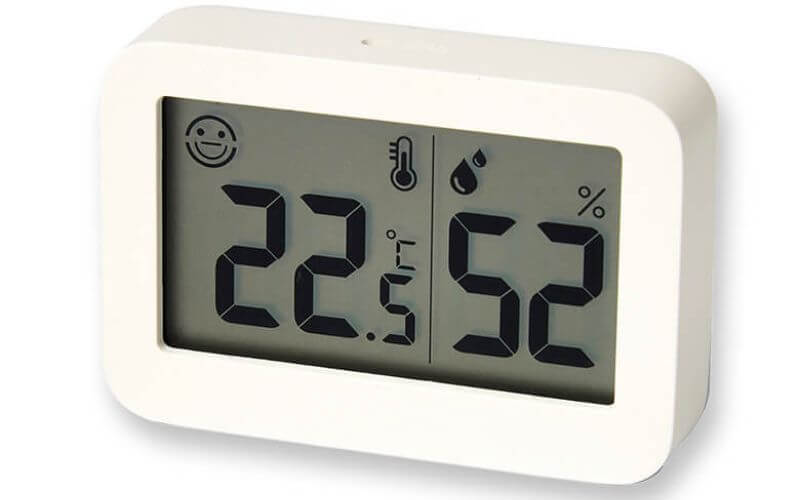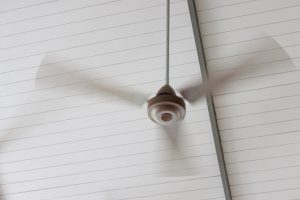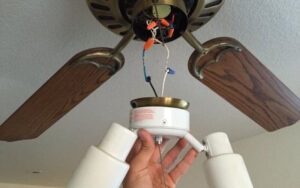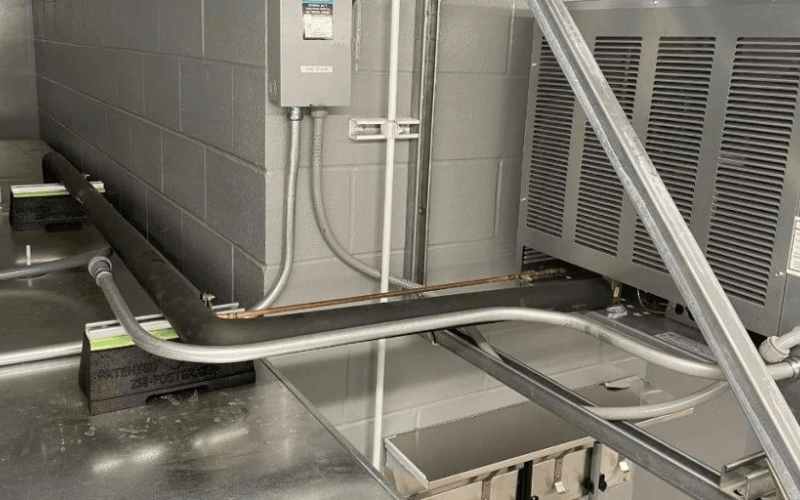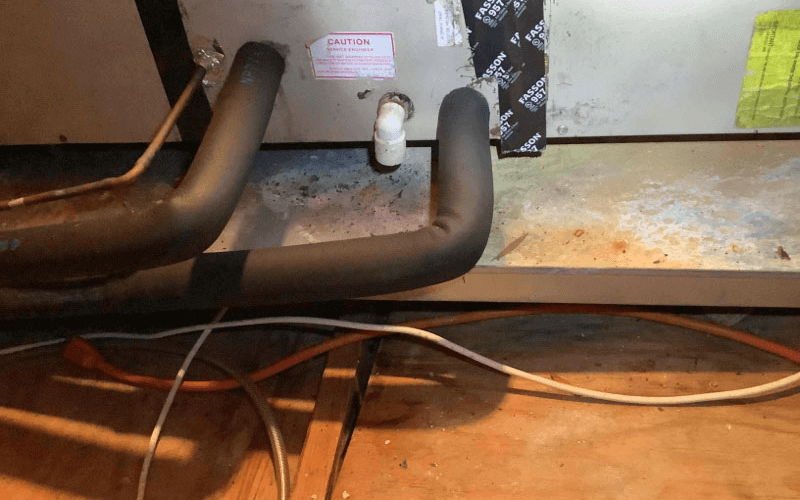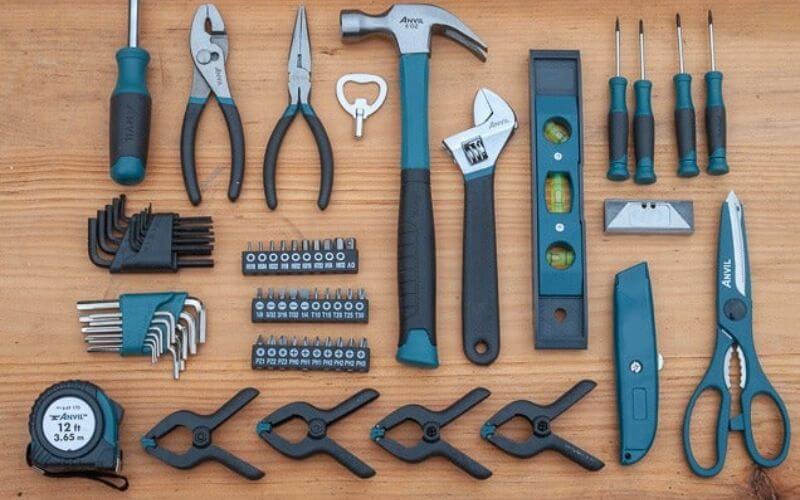It is necessary to monitor the moisture level in the air to maintain comfortable air conditions at home. You can do this with a hygrometer or humidity sensor, but skip to the next step. What should its location be? The hygrometer’s position is critical for it to function correctly. We looked it up and discovered the solution in this post!
A room humidity sensor should be installed in an elevated location away from windows and doors. This prevents external factors from interfering with the device’s ability to provide accurate measurements. Ideal placements for it in your home include bedrooms, kitchens, bathrooms, basements, and living rooms.
The location of your humidity sensor influences its accuracy and the changes you make to maintain the optimal humidity level in your room. Please continue reading to learn more about humidity sensors, how to use them, and how to set them up.
Table of Contents
ToggleAlso check: Vicks Humidifier Not Working – What to Do?
Is An HVAC Humidity Sensor Required In My Room?
We recommend installing the best humidity sensor in your room to monitor whether the humidity level is high or low. You can determine what adjustments need to be made to maintain ideal conditions by monitoring the humidity level in your room.
Condensation and mold growth will occur if the humidity in the room becomes too high. The further it spreads, the more dangerous it becomes. As a result, the primary function of a hygrometer is to monitor a space and alert you when humidity levels are too high or too low.
| Image | Product | Features | Price |
|
Best Seller
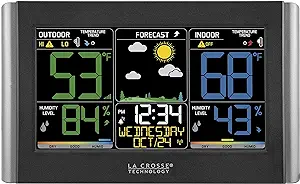
|
La Crosse Technology Weather Station |
Weather Forecas, Temperature, Dew Point, Humidity, Time, Heat Index, |
$49.98 |
|
Best Seller
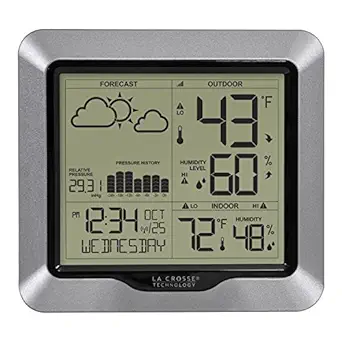
|
La Crosse Technology Advanced Wireless Weather Station: Dynamic Icons |
Barometric Pressure, Atomic Time, Temperature/Humidity Gauge, |
$41.06 |
|
Best Seller
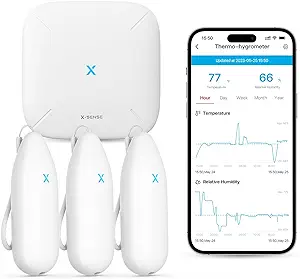
|
X-Sense Wi-Fi Hygrometer Indoor Humidity, Smart Hygrometer Thermometer |
Thermometer with Remote Monitoring & App Control, Wi-Fi Temperature Sensor |
$49.99 |
|
Best Seller
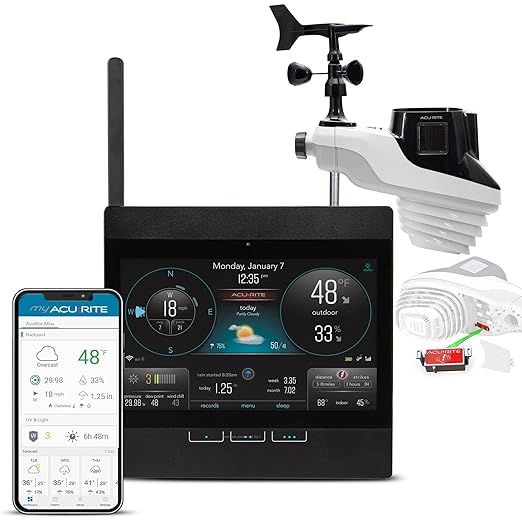
|
AcuRite Professional Home Weather Station with WiFi Display, Lightning Detection, |
Temperature, Humidity, Rain Gauge, Wind Speed/Direction Sensors |
$195.77 |
|
Best Seller
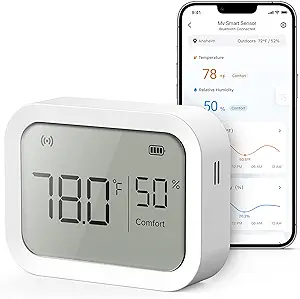
|
LEVOIT Smart Temperature Humidity Sensor, Hygrometer |
Hygrometer Indoor Humidity Thermometer for Home, Works with Aura Thermostat, |
$29.99
|
The Benefits of Humidity Sensors
Humidity sensors primarily report temperature and humidity readings, but they are also useful for a variety of other purposes, including:
Reduce Health Issues
Skin irritation and dehydration can occur in an overly dry environment. High humidity, however, can cause mold spores to become airborne, causing additional complications for you and your pet. These risks are significantly reduced under ideal conditions, protecting you, your family, and your home.
Stops Bacterial Growth
Mold grows on moist surfaces and produces tiny spores that can travel through the air. Although it is generally harmless, under the right conditions, it has the potential to spread and cause health problems at high levels of exposure.
As a result, maintaining moderate humidity levels denies bacteria the opportunity to thrive.
Also valuable to read how to measure humidity in the home
Keep Pets And Plants Safe.
Most pets can live in the same temperatures as humans. Humidity can also have an impact on your health. If exotic pets require different living conditions, you should consider isolating them and keeping humidity at the proper level.
Plant health is also affected by humidity. Plant growth is hampered by dry air, and too much humidity promotes fungus and root rot. You can avoid this by using a hygrometer to check the humidity regularly.
Keeps Air Comfortable
High humidity can degrade air quality by making the air from your home’s foundation sticky or musty. Using a humidity sensor to maintain the desired humidity level improves your home’s comfort.
Type of humidity sensor
Hygrometers are available in various styles, from basic to advanced. Variants include the following:
System For The Entire House
Individual sensors that must be strategically placed around the home are typically included with an entire home system. This system is ideal when precise moisture measurements in various home areas are required.
Sensor For Light Source Direction
A discrete device placed in a single room is a point source humidity sensor. They operate independently rather than as a group because they are separate units. Experts recommend these for monitoring humidity levels in specific areas and rooms.
Smart Modeling System
Humidity sensors with intelligent technology are also available. You can usually connect to WiFi or use your smartphone or computer to access and control these. Some models can even send you an email or text message when the humidity level exceeds a certain threshold.
Where Should The Humidity Sensor Be Installed?
Humidity sensors should be placed in areas where humidity is a significant concern. For example, if you’re concerned about moisture under your sink, you can install a hygrometer.
It is best to place the hygrometer in a room on the second floor or a surface away from windows and doors: wind, rain, and sunlight all impact the accuracy of device readings. As a result, it should be installed in an area where air circulation is not restricted.
For best results, avoid being near fans, heating or cooling systems or devices, or damp rooms or devices that heat up. Keep it at least 4-6 feet off the ground if you mount it on a wall.
If you aren’t using a whole-house system, keep it in rooms with high humidity, such as basements, bathrooms, kitchens, bedrooms, and living rooms.
Are Humidity Sensors Trustworthy?
Although research and humidity sensors are accurate, they must be tuned to handle errors. Nonetheless, these sensors produce accurate enough results to be considered reliable. Maintenance, including frequent calibration based on usage levels and environmental factors, is required to keep your device in good working order.
Depending on the make and model, most models last several years. It does not fail as frequently as other devices, but its accuracy deteriorates over time.
Top Humidity Sensor Selections for 2022
There are numerous humidity sensors available with various features. Here are some of the most popular choices.
Digital Room Hygrometer ThermoPro TP49
The ThermoPro TP49 has a broad measurement range and can report extreme humidity levels. Based on your face reading, it tells you how comfortable the space is. This allows you to detect changes in humidity quickly. However, some homeowners may find the straightforward user interface overly simplistic.
Govee H5179 WiFi Thermometer Hygrometer
The Govee H5179 Hygrometer has Wi-Fi control and connects to the Govee Home app for easy humidity data access. It provides fast and accurate updates and alerts you to significant changes when connected to a stable connection. Some homeowners are concerned that they are difficult to adjust to and navigate.
AcuRite Indoor Digital Hygrometer
This AcuRite Digital Hygrometer improves humidity control by increasing accuracy and responsiveness. It has a one-of-a-kind comfort scale that shows humidity levels directly on the screen. You can also calibrate the sensor based on the room or environment you want to monitor, but the instructions are confusing.
Also check: How To Set Temperature in Dry Mode?
Know What Place Is Best To Place A Humidity Sensor!
The location of interest usually determines the location of the humidity sensor. Experts recommend an elevated position in a room, about 4 to 6 feet off the floor, away from windows, doors, heating or cooling devices, and other devices that may disturb air conditions.

